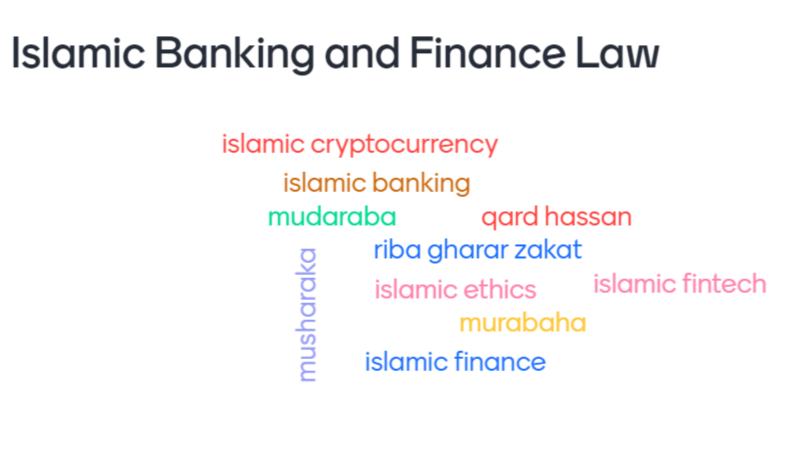Green Sukuk As an Alternative to Green Bonds – Opportunities and Challenges
By Leila Helali,

Urgent action is needed to address the imminent threat that climate change poses to human wellbeing and biodiversity[1]. Averting the climate crisis will require a wholesale transformation to a low-carbon, climate-resilient economy, which naturally involves, and has implications, also for the financial sector[2]. This is also recognized in the 2015 Islamic Declaration on Global Climate Change, which calls on corporations, finance, and the business sector to ‘assist in the divestment from the fossil fuel driven economy and the scaling up of renewable energy and other ecological alternatives’[3]. Emerging as one alternative to conventional green financial instruments are green sukuk, or Islamic green bonds.
Sukuk (sing. sakk) are defined by the Accounting and Auditing Organization for Islamic Financial Institutions (AAOIFI) as “certificates of equal value representing undivided shares in ownership of tangible assets, usufruct and services”[4]. Unlike conventional bonds, where an investor lends money to a borrower for a set period in exchange for regular interest payments, sukuk involve the issuer using the sukuk funds to finance an asset, project, or service, and in return, the sukuk holders gain ownership for a set period[5]. The earnings from the underlying asset are distributed among the sukuk holders according to a predetermined ratio[6] with the sukuk holders incurring either a profit or a loss depending on its performance[7]. In addition to complying with the prohibition of interest (riba), excessive risk (gharar) and speculation (maysir), the funds from sukuk should only be used for Sharia compliant activities[8].
Nasir, Nair and Ahmed observe that environmental protection is relevant to the objectives of Sharia (Maqasid Al-Sharia),[9] relating particularly to the protection of life (nafs), protection of wealth (mal), and the protection of progeny (nasl)[10]. As the name suggests, green sukuk are sukuk used to finance environment-related projects[11] thus aligning the financial and environmental imperatives of Islamic law. Much like conventional green bonds,[12] green sukuk can be used to fund projects related, for example, to climate change adaptation, renewable energy and energy efficiency, clean transportation, pollution control, and sustainable management of resources, land, and waste[13]. Green sukuk issuance is led by Saudi Arabia, Malaysia, and Indonesia, with green sukuk comprising 1.6% of ESG bond issuance (including, not limited, to green bonds), and 6.8% of total sukuk issuance as of 2023[14].
Green sukuk have the potential to steer the growth of the Islamic finance market towards environmentally beneficial projects[15] while also benefitting investors and issuers alike.
Unsurprisingly, green sukuk are especially attractive to investors, who adhere to Islamic principles, and want to be certain that their money will be invested in assets or projects in compliance with the Sharia[16]. However, Sean Kidney, the CEO of the Climate Bonds Initiative, observes that green sukuk also attract other investors, who see green sukuk as an “extension” of the conventional green bonds market.
As such, Michael Grifferty, the president of the Gulf Capital Market Association, observes that green sukuk are an opportunity for issuers to expand their investor base beyond the Islamic demographic[17].
These factors contribute to increased funding towards projects, which have already been shown to have tangible impacts in mitigating environmental harms and facilitating the climate transition.
For example, in Indonesia, green sukuk have been used to fund the construction of over 690 kilometers of railway tracks, and the improvement solid waste management for more than 7 million households[18].

However, green sukuk are not without their problems. The sukuk market is still in a nascent stage,[19] even moreso for green sukuk, with there being a prevailing lack of awareness about the potential benefits[20]. Returning to the example of Indonesia, Abubakar and Handayani note a lack of awareness about green sukuk among stakeholders, including sukuk issuers, such as the Ministry of Finance, which creates challenges in project planning, and thus, impedes the potential benefits projects can offer[21]. Furthermore, Güçlü observes that lack of standardization “makes it difficult for investors to evaluate the environmental impacts” of projects funded by green sukuk,[22] which may turn away the most environmentally-conscious investors, who want to ascertain the climate impacts of their investment.
On the other hand, Shalhoob observes that developing the necessary frameworks to standardize and market green sukuk is a lengthy process[23] which is an issue in a market, where time is of the essence[24].
With some efforts to introduce increased standardization to the Islamic finance market possibly boiling under the surface,[25] what trajectory green sukuk ultimately take remains to be seen — although, without comprehensive data, just evaluating their performance and structure might be an uphill battle[26].
References:
[1] Katherine Calvin and others, ‘IPCC, 2023: Synthesis Report. Contribution of Working Groups I, II and III to the Sixth Assessment Report of the Intergovernmental Panel on Climate Change.’ (Intergovernmental Panel on Climate Change (IPCC) 2023) 24 < www.ipcc.ch/report/ar6/syr/> accessed 24 April 2024.
[2] Sina Hbous, ‘Mobilising Islamic Banking for Climate Action’ (UNEP FI, IsDB & CIBAFI, October 2023) ix <www.isdb.org/sites/default/files/media/documents/2023-10/Mobilising-Islamic-Banking-for-Climate-Action.pdf> accessed 24 April 2024.
[3] ‘Islamic Declaration on Global Climate Change’ (International Islamic Climate Change Symposium in Istanbul in 17–18) 7 <http://islamicclimatedeclaration.org/islamic-declaration-onglobal-climate-change/> accessed 24 April 2024.
[4] Shariʻah Standards: Full Text of Shariʻah Standards for Islamic Financial Institutions as at Safar 1437 A.H.-December 2015 A.D (Accounting and Auditing Organization for Islamic Financial Institutions 2015) 468.
[5] Mohammed Sawkat Hossain, Md Hamid Uddin and Sarkar Humayun Kabir, ‘Sukuk and Bond Puzzle: An Analysis with Characteristics Matched Portfolios’ (2021) 57 Emerging Markets Finance and Trade 3792, 3793.
[6] ibid.
[7] Fatih Güçlü, ‘The Rise of Environmental Consciousness in Islamic Finance: Green Sukuk’ in Celil Aydın and Burak Darici (eds), Handbook of energy and environment policy (Peter Lang 2019) 252.
[8] ibid 251.
[9] Norita Mohd Nasir, Mahendhiran Sanggaran Nair, and Pervaiz Khalid Ahmed, ‘Environmental Sustainability and Contemporary Islamic Society: A Shariah Perspective’ (2022) 27 Asian Academy of Management Journal 228 <https://ejournal.usm.my/aamj/article/view/aamj_vol27-no2-2022_10> accessed 25 April 2024.
[10] Sina Hbous (n 2) 15–16.
[11] Hebah Shalhoob, ‘Green Sukuk in Saudi Arabia: Challenges and Potentials of Sustainability in the Light of Saudi Vision 2030’ (2023) 12 Journal of Governance and Regulation 351, 352.
[12] Marcelina Więckowska, ‘The Role Bonds in Financing Climate Resilient Economy’ (2013) 2 Copernican Journal of Finance & Accounting 153, 158.
[13] Sina Hbous (n 2) 7.
[14] ‘Green and Sustainability Sukuk Update 2023’ (LSEG Data & Analytics, London Stock Exchange, UKIFC and GEFI, 2023) 4<https://www.lseg.com/content/dam/data-analytics/en_us/documents/reports/lseg-green-and-sustainability-sukuk-update-2023-report.pdf> accessed 25 April 2024.
[15] Sina Hbous (n 2) 5.
[16] Shalhoob (n 11) 355.
[17] Melanie Noronha, ‘A New Shade of Green: Sukuk for Sustainability’ (Economist Impact, 23 March 2020) <https://impact.economist.com/sustainability/resilience-and-adaptation/a-new-shade-of-green-sukuk-for-sustainability> accessed 25 April 2024.
[18] ‘Innovation in Islamic Finance: Green Sukuk for SDGs’ (The UK Islamic Finance Council and United Nations Development Programme, 28 September 2021) 19 <www.undp.org/indonesia/publications/innovation-islamic-finance-green-sukuk-sdgs> accessed 25 April 2024.
[19] Muhamed Zulkhibri, ‘A Synthesis of Theoretical and Empirical Research on Sukuk’ (2015) 15 Borsa Istanbul Review 237, 239.
[20] Shalhoob (n 11) 355.
[21] Lastuti Abubakar and Tri Handayani, ‘Green Sukuk: Sustainable Financing Instruments for Infrastructure Development in Indonesia’, Proceedings of the 1st Borobudur International Symposium on Humanities, Economics and Social Sciences (BIS-HESS 2019) (Atlantis Press 2020) 986 accessed 25 April 2024.
[22] Güçlü (n 7) 256.
[23] Shalhoob (n 11) 351.
[24] Lee Irvine, Michael P Grifferty and Alice Cowman, ‘Green Sukuk – The Race to Be First’ Islamic Finance News (5 November 2014) <https://www.gulfcapitalmarket.org/insight/green-sukuk-race-first-first-published-islamic-finance-news-ifn-issue-44-dated-5th-november-2014/#> accessed 25 April 2024.
[25] Mohamed Damak and others, ‘Global Sukuk Issuance Is Set To Increase In 2021’ S&P Global (12 January 2021) <https://www.spglobal.com/ratings/en/research/articles/210112-global-sukuk-issuance-is-set-to-increase-in-2021-11794854>.
[26] Shalhoob (n 11) 5.
#Islamic finance, #Greensukuk, #GreenIslamicbonds, #climatechange










